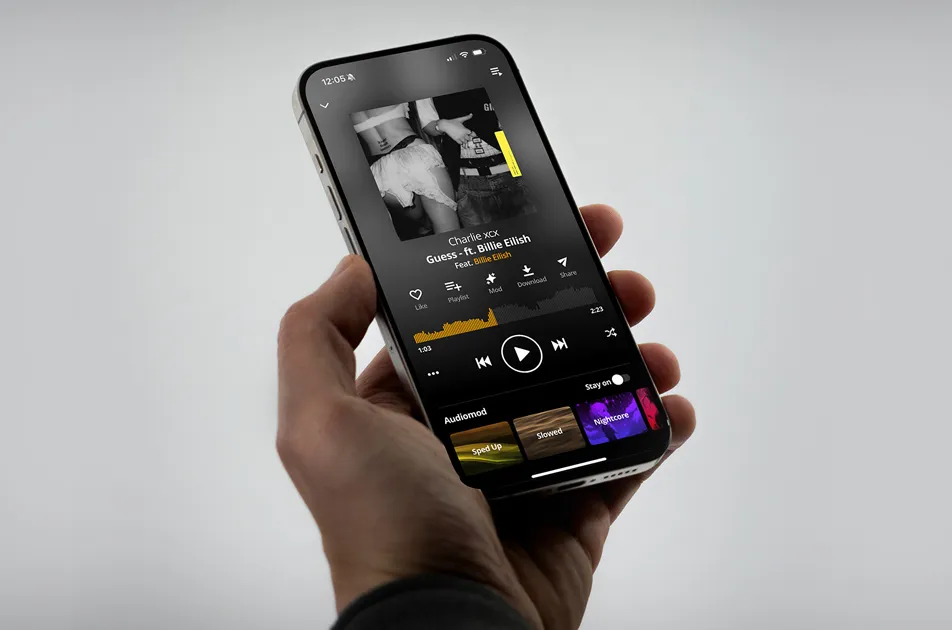Despite my best wishes, we're not getting Spotify for Christmas. To me, this is the equivalent of placing coal in the stockings of music fans everywhere. The holdup is rooted in the free side of their service. Major labels are worried that their ‘freemium’ service isn't effective enough at converting fans into paid subscribers.
They think that Spotify will further devalue digital music. I understand this sentiment. However, I'm left asking myself, what is the alternative plan?
If the major labels don't let Spotify into the U.S., what do music fans have to look forward to? Right now, the big money is on Google. They're looking to launch a music service comparable to Spotify. It's a compelling thought. When fans type the names of their favorite artists in Google, they won't be sent off to MySpace Music, Rhapsody, or Pandora. Not anymore. They will remain within Google.
Obviously, Google wouldn't have much trouble raising awareness for their music service. Anyone, looking for anything, anywhere, would be hammered with ads for their music service. Google has one thing that other services don't: the world's attention at their fingertips. They also have access to all the data for every artist that has been searched for in their engine. These elements would enable Google to gain instant traction in the digital music sector. They may not topple Apple out of the gate, but their ability to raise awareness quickly greatly helps their odds.
Raise Awareness
This is the challenge that RDIO, MOG, and Thumbplay have the greatest trouble surmounting. They must raise awareness for their services with limited funds.
They don't have Google money. These companies can't interject themselves and their music services into the public consciousness overnight. They have to build their awareness slowly overtime and smartly target audiences that would be the most likely to sign up for on-demand music. While they certainly aspire to have mass-market adoption, they can't burn through cash and look the other way.
They'd bankrupt themselves.
Google and Apple, if they can ever get their on-demand streaming services off the ground, have the marketing power necessary to influence behavior. What they do will determine the trajectory of the digital music sector. There's an upside and a downside to this, but if anyone is capable of interesting fans in on-demand music streaming and subscriptions, it's them. But, can Spotify achieve the same feat?
It's hard to say. They run the challenge of convincing the major labels that they'll be able to gain mass-adoption and convert they're users into paid subscribers.
Plus, they have many more competitors in the digital music sector in the U.S. than they do over in the U.K. This has not been looked over. Their goal of course is to be able to separate themselves from RDIO and MOG by offering a limited, 20-hour-a-month, free service to attract fans. Slacker shares a similar strategy.
They aim to create the best radio service possible and entice fans to upgrade to an on-demand capability. Given the penchant that fans have for radio, it will be interesting to see which of the two services will be able to convert fans to paying subscribers. Due to the lack of options that fans have to stream music for free, Spotify will have a competitive advantage if they're able keep free on-demand streams. Since YouTube and Grooveshark are the few destinations online that enable fans to stream almost any song for free, fans will welcome another site.
Embrace The Chaos
Now, as for the question of whether or not Spotify will be able to establish a high enough user conversion rate, I've always wondered this. By and large, iTunes has been tremendously successful. However, in terms of converting file-sharers into paying fans en masse, they've basically failed. A large majority of fans don't buy music from them or anyone else for that matter. Sure, major labels are worried that Spotify may further erode the audience for paying for digital music. They're afraid that fans that would've normally spent their money on iTunes will refrain.
Considering the current state of the record industry, it's easy to imagine why they consider this to be a bad move. However, in disrupting iTunes, they're positioning a service in the market that's better than piracy. It's better to pull file-sharers into a compelling music service like Spotify than it is to let them roam free elsewhere.
The way to explore and cultivate complex ecosystems like the digital ecology is to let as many companies try as many things as possible – with the general hope that everyone who fails will do so in an informative manner. We need to embrace Spotify and their chaos. They might fail. Regardless, we must learn from Spotify.
The major labels need to create their own disruption. Because, someone else, somewhere out there, is getting ready to do it for them. "Only by embracing the disruption will you control your future," writes Forrester analyst Mark Mulligan.
Embrace the chaos. Control the future. The time to empower disruption is now.




